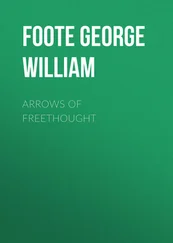George Foote - Bible Romances, First Series
Здесь есть возможность читать онлайн «George Foote - Bible Romances, First Series» — ознакомительный отрывок электронной книги совершенно бесплатно, а после прочтения отрывка купить полную версию. В некоторых случаях можно слушать аудио, скачать через торрент в формате fb2 и присутствует краткое содержание. Жанр: foreign_antique, foreign_prose, на английском языке. Описание произведения, (предисловие) а так же отзывы посетителей доступны на портале библиотеки ЛибКат.
- Название:Bible Romances, First Series
- Автор:
- Жанр:
- Год:неизвестен
- ISBN:нет данных
- Рейтинг книги:5 / 5. Голосов: 1
-
Избранное:Добавить в избранное
- Отзывы:
-
Ваша оценка:
- 100
- 1
- 2
- 3
- 4
- 5
Bible Romances, First Series: краткое содержание, описание и аннотация
Предлагаем к чтению аннотацию, описание, краткое содержание или предисловие (зависит от того, что написал сам автор книги «Bible Romances, First Series»). Если вы не нашли необходимую информацию о книге — напишите в комментариях, мы постараемся отыскать её.
Bible Romances, First Series — читать онлайн ознакомительный отрывок
Ниже представлен текст книги, разбитый по страницам. Система сохранения места последней прочитанной страницы, позволяет с удобством читать онлайн бесплатно книгу «Bible Romances, First Series», без необходимости каждый раз заново искать на чём Вы остановились. Поставьте закладку, и сможете в любой момент перейти на страницу, на которой закончили чтение.
Интервал:
Закладка:
Before Noah got drunk he had received from God the assurance that the world should never more be destroyed by a flood. As a perpetual sign of this covenant the rainbow was set in the heavens. But the rainbow must have been a common sight for centuries before. This phenomenon of refraction is the result of natural causes which operated before the Flood, as well as after. The earth yielded its fruits for human sustenance, and therefore rain must have fallen. If rain fell before the Deluge, as we are bound to conclude, the rainbow must have been then as now. The usual practice of commentators is to explain this portion of the narrative by assuming that the rainbow was visible before the covenant with Noah, but only after the covenant had a special significance. But, as Colenso observes, the writer of the story supposes the rainbow was then first set in the clouds, and is evidently accounting for the origin of this beautiful phenomenon, which might well appear super natural to his uninstructed imagination.
Besides the manifold absurdities of this story there are other aspects of it even more startling. What a picture it presents of fiendish cruelty and atrocious vindictiveness! What an appalling exhibition of divine malignity! God, the omnipotent and omniscient ruler of the universe, is represented as harboring and executing the most diabolical intentions. He ruthlessly exterminates all his children except a favored few, and includes in his vengeance the lower animals also, although they were innocent of offence against his laws. Every creature in whose nostrils was the breath of life, with the exception of those persevered in the ark, was drowned, and the earth was turned into a vast slaughter-house. How imagination pictures the terrible scene as the waters rise higher and higher, and the ravening waves speed after their prey! Here some wretched being, baffled and hopeless, drops supinely into the raging flood; there a stronger and stouter heart struggles to the last. Here selfish ones battling for their own preservation; there husbands and wives, parents and children, lovers and maidens, affording mutual aid, or at last, in utter despair, locked in a final embrace and meeting death together. And when the waters subside, what a sickening scene presents itself! Those plains, once decked with verdure, and lovely in the sun and breeze, are covered with the bones of a slaughtered world. How can the Christian dare to justify such awful cruelty? The God of the Pentateuch is not a beneficent universal father, but an almighty fiend.
This story of Noah's Flood is believed still because people never examine what is taught them as the word of God. Every one who analyses the story must pronounce it the most extraordinary amalgam of immorality and absurdity ever palmed off on a credulous world.
EVE AND THE APPLE
BIBLE ROMANCES. -3
By G. W. FOOTE.
Christianity is based upon the story of the Fall. In Adam all sinned, as in Christ all must be sayed. Saint Paul gives to this doctrine the high sanction of his name, and we may disregard the puny whipsters of theology, who, without any claim to inspiration, endeavor to explain the Genesaic narrative as an allegory rather than a history. If Adam did not really fall he could not have been cursed for falling, and his posterity could not have become partakers either in a sin which was never committed or in a malediction which was never pronounced. Nor can Original Sin be a true dogma if our first parents did not transmit the germs of iniquity to their children. If Adam did not fall there was no need for Christ to save us; if he did not set God and man at variance there was no need for an atonement; and so the Christian scheme of salvation would be a fiasco from beginning to end. This will never do. No Garden of Eden, no Gethsemane! No Fall, no Redemption! No Adam, no Christ!
Mother Eve's curiosity was the motive of the first transgression of God's commandments in the history of the world, and the whole human race was brought under the risk of eternal perdition because of her partiality to fruit. Millions of souls now writhe in hell because, six thousand years ago, she took a bite of an apple. What a tender and beautiful story! God made her to be Adam's helpmeet. She helped him to a slice of apple, and that soon helped them both outside Eden. The sour stuff disagreed with him as it did with her. It has disagreed, with all their posterity. In fact it was endowed with the marvellous power of transmitting spiritual stomach-ache through any number of generations.
How do we know that it was an apple and not some other fruit? Why, on the best authority extant after the Holy Scriptures themselves, namely, our auxiliary Bible, "Paradise Lost;" in the tenth book whereof Satan makes the following boast to his infernal peers after his exploit in Eden: —
"Him by fraud I have seduced
From his Creator, and, the more to increase
Your wonder, with an apple ."
Yet another authority is the profane author of "Don Juan," who, in the first stanza of the tenth canto, says of Newton:
"And this is the sole mortal who could grapple,
Since Adam, with a fall, or with an apple ."
Milton, being very pious, was probably in the counsel of God. How else could he have given us an authentic version of the long colloquies that were carried on in heaven? Byron, being very profane, was probably in the counsel of Satan. And thus we have the most unimpeachable testimony of two opposite sources to the fact that it was an apple , and not a rarer fruit, which overcame the virtue of our first parents, and played the devil with their big family of children.
This apple grew on the Tree of Knowledge, which God planted in the midst of the Garden of Eden, sternly enjoining Adam and Eve not to eat of its fruit under pain of death. Now the poor woman knew nothing of death and could not understand what a dreadful punishment it was; and there was the fruit dangling before her eyes every hour of the day. Is it any wonder that she brooded incessantly on the one thing forbidden, that her woman's curiosity was irresistably piqued by it, and that at last her longing grew so intense that she exclaimed, "Dear me! I can't refrain any longer. Let the consequences be what they will, I must have a bite." God made the woman; he knew her weakness; and he must have known that the plan he devised to test her obedience was the most certain trap that could be invented. Jehovah played with poor Eve just as a cat plays with a mouse. She had free-will, say the theologians. Yes, and so has the mouse a free run. But the cat knows she can catch it again, and finish it off when she is tired of playing.
Not only did God allow Eve's curiosity to urge her on to sin, he also permitted the serpent, "more subtil than any beast of the field," to supplement its action. This wily creature is popularly supposed to have been animated on the occasion by the Devil himself; although, as we shall explain in another Romance entitled "The Bible Devil," the book of Genesis makes not even the remotest allusion to such a personage. If, however, the tempter was the Devil, what chance had the poor woman against his seductive wiles? And even if he was only a serpent, he was very "subtil" as we are told, and able to talk like a book, and we know that these creatures have fatal powers of fascination. Surely Mother Eve was heavily handicapped. God might have given her fair play, and left her to fight the battle without furnishing auxiliaries to the strong side.
The serpent, we have said, could converse in human speech. His conversation and his conduct will be dealt with in the Romance just referred to. Suffice it here to say that he plainly told the woman that God was a liar. "He," said the tempter, "has said ye shall surely die if ye touch the fruit of this tree. Don't believe it. I tell you, ye shall not surely die." What could poor Eve think? In addition to her native curiosity here was another incentive to disobedience. Which of these two spoke the truth? There was only one way of deciding. She stretched forth her hand, plucked an apple, and began to eat. And immediately, says Milton,
Читать дальшеИнтервал:
Закладка:
Похожие книги на «Bible Romances, First Series»
Представляем Вашему вниманию похожие книги на «Bible Romances, First Series» списком для выбора. Мы отобрали схожую по названию и смыслу литературу в надежде предоставить читателям больше вариантов отыскать новые, интересные, ещё непрочитанные произведения.
Обсуждение, отзывы о книге «Bible Romances, First Series» и просто собственные мнения читателей. Оставьте ваши комментарии, напишите, что Вы думаете о произведении, его смысле или главных героях. Укажите что конкретно понравилось, а что нет, и почему Вы так считаете.












